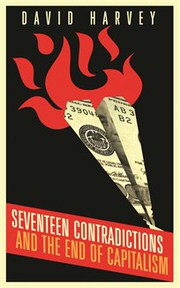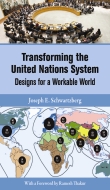Advantage n - “superiority
of position or condition”. Thus seeking
advantage is to gain a superior or upper hand.
We have allowed ourselves to be convinced that this orientation will
produce all that is good and worthy for a life to be fulfilled, that it is a
natural biological imperative. Some have argued that Darwin’s ‘survival of the
fittest’ is all there is to know and that it is the dominant characteristic of
all life. Of course, that’s the narrow reading of
what Darwin actually said in The Descent
of Man.
We are used to stories of winners and losers and are thus are
attracted to them. Be that as it may, we have taken this biological factor to
be transferable to our social, political, and economic lives as well. Winners,
or those with “superiority of position or condition”, use this advantage to establish the rules to maintain or improve
that condition or position. While this might
seem innocent enough during a friendly game, where winning is a side benefit of
the enjoyment of playing, in our larger social, economic and political lives disproportionate
and lasting advantage hampers community well-being.
Linked closely to ‘seeking advantage’ is a drive towards
domination. When our world was less
developed and less crowded, the planet could absorb some of the damage
inflicted on it as advantage and domination were sought over nature and other
beings. Obviously many suffered and
continue to suffer from domination. It is clear that our economic model is
fundamentally glued to this drive to seek advantage and domination. No doubt many, if not most, corporations who
love to achieve “too big to fail” status. Hardly anyone questions endless growth
or concentration of power as a concern. As in cancer, we often find out too
late, that such an unchecked appetite is fatal.
Of course, our recent political season, is emblematic of that same
notion in our political system. Both major parties are out to dominate. When in
power they change the rules to benefit their position and condition. The
Republican Party took this to new levels upon the election of Barack Obama,
when Sen. Mitch McConnell said “The
single most important thing we want to achieve is for President Obama to be a
one-term president.” Of course, the game of gerrymandering is all about
securing party advantage. We just assume this kind of “seeking advantage” is
normal, and therefore acceptable.
Step this up a notch to global affairs and the predominant ethos among most of the more powerful nation
states is too secure as much advantage as possible for as long as possible over
every other nation. This is emblazoned in the veto power of the permanent
members of the Security Council and the special powers they hold over the
global community. In the US we never
heard from any of the presidential candidates any commitment to any sense of a
just global governance system. I don’t even think there was single mention of
the United Nations. US exceptionalism is
just one symbol of advantage and dominance sought. There seems to be no real
sense of seeking unity, certainly not from the five permanent members of the
SC.
In this all-encompassing worldview -- winning for oneself, one’s
team, one’s state, or one’s nation is the true goal. The others, the losers,
don’t matter. They are separate from us. They don’t matter. There is no room
for empathy or compassion when winning, or seeking advantage, is the goal. As I
sit here this evening thinking about these things, I see no desirable future with
this worldview for the human family or the other living things we share this
planet with. Some folks will surely find their condition and position superior
to others. Until we challenge this unfettered myth that we can escape
terrorism, climate destabilization, and increasing inequality if everyone
simply seeks their own advantage, we are destined to heighten those same
challenges. Our obsession with and fealty to spectator sports is a reinforcing loop
to these more important systems where advantage and domination are the prize.

For all its many imperfections, the human family took a
major step together at the end of WWII with the establishment of the United
Nations. Recently those 193 member nations agreed on 17 goals to attain
together by 2030 if we are to live well together on this fragile planet for the
remainder of this century. The Sustainable
Development Goals offer us a framework for making choices at all levels.
How do the choices we make affect the attainment of those goals across the
globe? If we are fixing one goal but making attainment of another less likely
we can’t make the progress we need. We will need collective intelligence of many to
insure our choices move multiple goals forward at the same time and that
improvement in one place does not put another place in jeopardy. This is where democracy, especially in the sense that we are ALL global citizens holds some promise, some possibility that we must seize.
This is a major change in worldviews, at least as
represented by the visible systems and leaders in this country. As has been the
case in the past, change of this level must be led from the grassroots -- from
us as individuals and members of communities. Let’s hope it’s not too late.
Imagine a world where everyone is secure economically – good shelter, ample
good food, good and plentiful water, and personal security wherever they
live. We can do this if we share and
work to rid ourselves of the seeds of violence and domination. This is system
change I can believe in.









